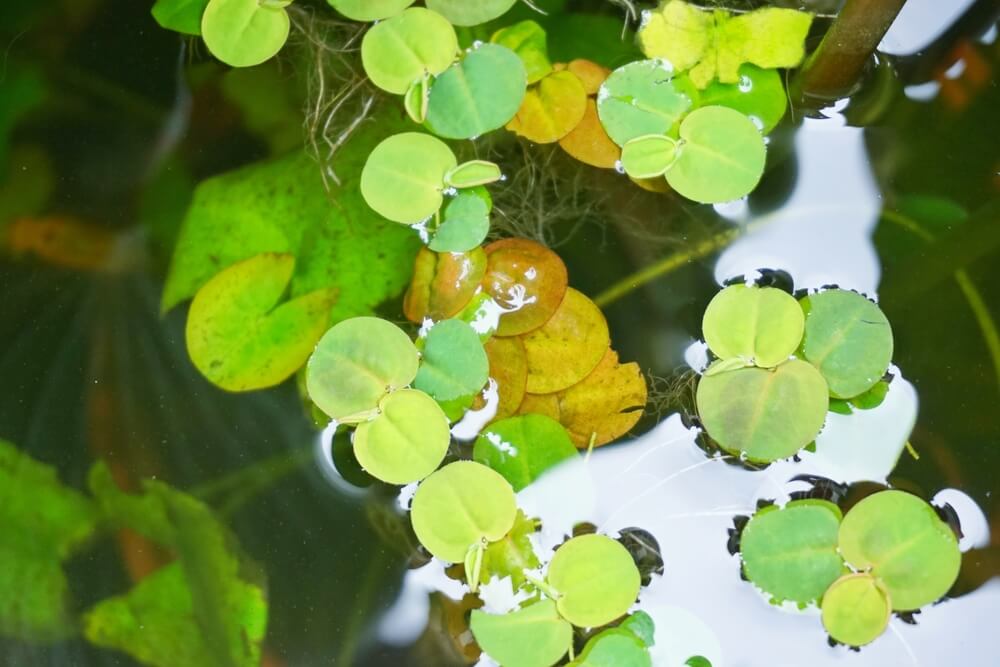.jpg?width=1200&length=1200&name=Ludwigia%20Repens%20In%20Tank%20ss%20(1).jpg)
Floating aquarium plants are an excellent addition to any aquatic setup. They not only enhance the aesthetic appeal of your tank but also provide numerous benefits for the aquatic environment. Here’s a detailed guide to help you understand the value of floating plants and how to choose the best ones for your aquarium.
Why Choose Floating Aquarium Plants?
1. Natural Filtration: Floating plants absorb excess nutrients from the water, reducing the risk of algae blooms and helping to keep the water clean and clear. They act as a natural filtration system, promoting a healthier environment for your fish and other aquatic life.
2. Oxygenation: These plants contribute to the oxygen levels in your tank. During the day, they photosynthesize, releasing oxygen into the water, which is crucial for the survival and well-being of your fish.
3. Shade and Shelter: Floating plants provide shade, which can help reduce stress in fish by mimicking their natural habitat. They also offer hiding spots for shy or smaller fish, enhancing their sense of security and well-being.
4. Surface Cover: By covering the surface of the water, floating plants can reduce the amount of light that penetrates the tank. This can be particularly beneficial in controlling algae growth, as algae thrive on light.
Popular Floating Aquarium Plants
1. Duckweed (Lemna minor): Duckweed is one of the most common floating plants. It grows rapidly and forms a dense mat on the water surface, providing excellent shade and coverage.
2. Frogbit (Limnobium laevigatum): Frogbit is similar to Water Lettuce but smaller. It has rounded leaves that float and long, trailing roots. It’s easy to care for and adds a charming touch to any aquarium.
3. Red Root Floater (Phyllanthus fluitans): This plant is known for its striking red roots and floating leaves. It’s a bit more delicate but adds a unique color contrast to your tank.
Caring for Floating Aquarium Plants
1. Light Requirements: Floating plants generally require moderate to high light. Ensure your aquarium lighting is sufficient to support their growth. If necessary, consider adding a specialized aquarium light to meet their needs.
2. Nutrient Needs: While floating plants absorb nutrients from the water, they may benefit from occasional fertilization, especially in heavily stocked tanks where nutrients can be quickly depleted.
3. Water Movement: These plants prefer calm water. Strong currents can damage them or cause them to clump together. Ensure your aquarium has areas of still water where floating plants can thrive.
4. Regular Maintenance: Floating plants grow quickly, so regular thinning is essential to prevent them from covering the entire surface. This ensures adequate light penetration for other plants and avoids oxygen depletion at night.
Where to Buy Floating Aquarium Plants
At Canton Aquatics, we offer a wide selection of floating aquarium plants that are perfect for enhancing your tank. From Duckweed to Water Lettuce, our plants are healthy and ready to thrive in your aquarium. Check out our selection here.
Floating aquarium plants are a fantastic addition to any tank, offering numerous benefits and creating a more natural and beautiful environment. By choosing the right plants and providing proper care, you can enjoy a thriving, balanced aquarium. Explore our collection at Canton Aquatics and elevate your aquascape today!




.jpg?width=352&name=Hygrophila+difformis%20Water%20Wisteria%20(1).jpg)
Leave a Comment